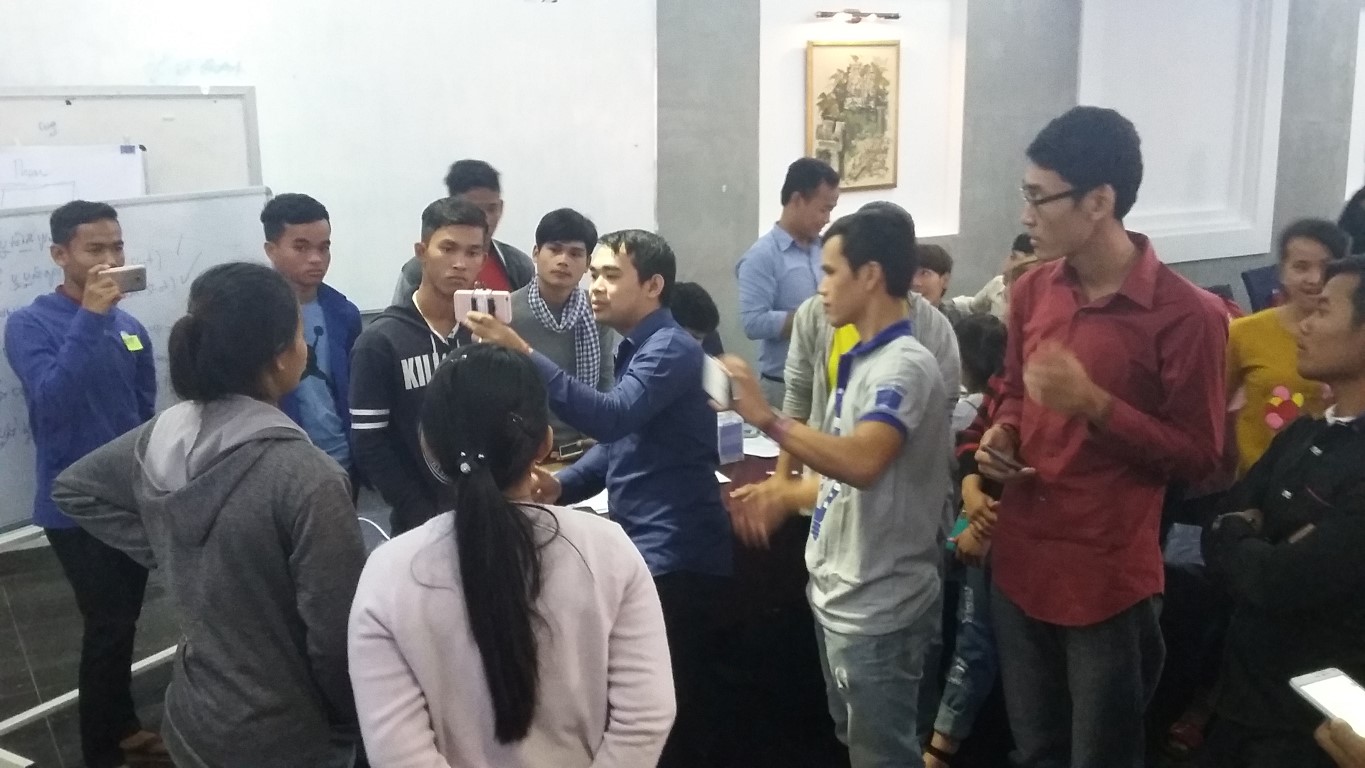In December 2016, the Cambodian Center for Independent Media (CCIM), with the cooperation and funding support of the United Nations Educational Scientific and Cultural Organization (UNESCO) conducted its fourth media forum in Siem Reap where journalists from different media organizations in the north-western part of Cambodia were given an opportunity to engage in the final round of discussion of a draft law on access to information.
This forum raised the same concerns of the draft law that were addressed in the previous media forums. The lack of standards, limited advertisement of the draft, lack of clear statements written in articles of the draft, and risks of facing legal actions remain what journalists are worried about. It is crystaly clear that there is an immediate need to spend considerable time on consultation with concerned people and legal experts before moving forward. Failing to do so will mean the draft law, if it is adopted, will certainly do more harm than good. Freedom of expression will then be subject to suppression, given the nature of the current draft law.
Mr. Plong Reth, director of Siem Reap-based Kampuchea Sovannaphum newspaper, argued that the draft law remains problematic for many reasons. Reth, who honestly admitted that he had never heard such kind of draft law before, pointed out that articles 26, 27 and 28 were too broad and unclear. “Anything stated unclearly is subject to ambiguity and ambiguity can lead to different interpretations giving room for manipulation of the law,” Reth said with self-confidence.
Submitting a written form to request sources of information is already a boring procedure for reporters, but waiting for 15 to 45 days to get a response from officials in charge of information is even more time-consuming, especially given the pressing deadlines to write news reports.
 According to Mr. Meas Say, a reporter at Reaksmey Kampuchea, a popular daily newspaper published in Khmer, waiting for 15 to 45 days to get information is unusually long. “You can just take a look at Facebook and you will know how fast it works,” said Say, challenging that “who will read my news reports if it really takes me 15 days just to get verified sources from authorities?”
According to Mr. Meas Say, a reporter at Reaksmey Kampuchea, a popular daily newspaper published in Khmer, waiting for 15 to 45 days to get information is unusually long. “You can just take a look at Facebook and you will know how fast it works,” said Say, challenging that “who will read my news reports if it really takes me 15 days just to get verified sources from authorities?”
Miss Isaro Hari, a representative of Thmey Thmey, one of the leading online news platforms, shared the same concerns as Say. Hari claimed that it would be much better if we could classify types of information and set a different timeframe to respond to reporters accordingly.
In addition to unclear statements, there are a number of vague terms, such as bullying, provocation, and disturbance. These vague and odd terms are used as a legal basis to charge any journalist that keeps on contacting or approaching public officials for information or clarification.
“What I understand is that I might be charged with disturbing public officials if I reach a provincial governor by phone to ask for his confirmation during his meeting with other high-ranking officials,” said Reaksmey Kampuchea reporter Meas Say, adding that “how can I know a provincial governor is in a meeting?”
More importantly, the secret information, Say argues, should be clearly defined. Referring to his experience in reporting sensitive issues, Say argued that officials are able to refuse to answer his questions on the grounds that they involved classified information related to state security. “If I want to clarify the budget spent on public infrastructure, officials can easily reject my request simply because they say it is secret information which cannot be released to the public. If so, what does budget transparency mean?”
 CCIM and UNESCO have cooperated with each other to implement a one-year project of the draft law on Access to Information. The project has now come to an end and it would be fair to conclude both CCIM and UNESCO are pleased with the project’s achievements of advertising the draft law, organizing forums to give journalists an opportunity to address their concerns and compiling all feedback and comments in a report. All of these concerns will be addressed through technical working groups in 2017 that will involve participation by representatives of the Ministry of Information.
CCIM and UNESCO have cooperated with each other to implement a one-year project of the draft law on Access to Information. The project has now come to an end and it would be fair to conclude both CCIM and UNESCO are pleased with the project’s achievements of advertising the draft law, organizing forums to give journalists an opportunity to address their concerns and compiling all feedback and comments in a report. All of these concerns will be addressed through technical working groups in 2017 that will involve participation by representatives of the Ministry of Information.
Since there will be another round of consultation between the Ministry of Information, Non-Government Organizations and legal experts in 2017, CCIM and UNESCO believe that the outcome of this project will contribute to improving the draft law so that the upcoming law on Access to Information will take part in promoting freedom of press and rights of access to information from which everyone can benefit. (Sek Sophal)


